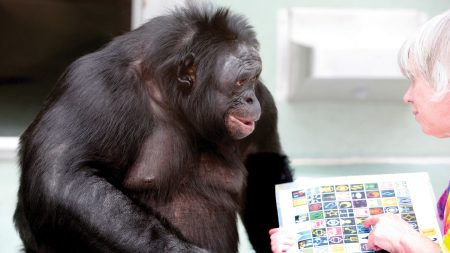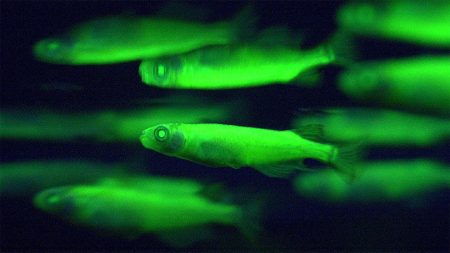Two different studies have calculated the number of neurons in the forebrain of Tyrannosaurus rex, leading to conflicting results. The first study by Herculano-Houzel estimated that T. rex had 3.3 billion neurons, suggesting it had a brain similar to that of modern primates. However, a new study by Gutiérrez-Ibáñez and colleagues calculated that T. rex had closer to 360 million neurons, indicating a brain more comparable to that of modern crocodiles. This discrepancy arises from differences in assumptions about brain structure, neuron density, and the comparison with modern animals.
When estimating the number of neurons, researchers must consider the density of brain cells, which can vary widely across species. The lack of well-preserved brain tissues in the fossil record makes it challenging to accurately determine neuron counts in extinct animals. The fact that T. rex is related to both reptiles and birds further complicates matters, as these groups exhibit different neuron densities. Researchers often use modern relatives as proxies to estimate neuron densities in extinct species.
Herculano-Houzel’s study assumed a closer link between T. rex and birds based on the ratio of brain size to body mass, leading her to use neuron densities of modern birds to calculate the dinosaur’s neuron count. However, Gutiérrez-Ibáñez’s new study incorporated a broader range of bird species, aligning T. rex’s brain more closely with reptiles. They argue that previous assumptions about braincase size and the distribution of neurons within dinosaurs led to inflated neuron counts.
The debate surrounding T. rex’s intelligence revolves around the number of neurons in its forebrain. While neuron count may not directly correlate with cognitive abilities, it likely influenced the dinosaur’s sensory and motor functions. Even if T. rex had a neuron density comparable to primates, many of these neurons were likely dedicated to olfactory processing due to the large smell centers in its forebrain. Balanoff notes the value of these studies in sparking discussions but highlights the importance of accurate data interpretation to advance scientific knowledge. Ultimately, the intelligence of T. rex remains a complex and intriguing aspect of its biology that requires further investigation.















